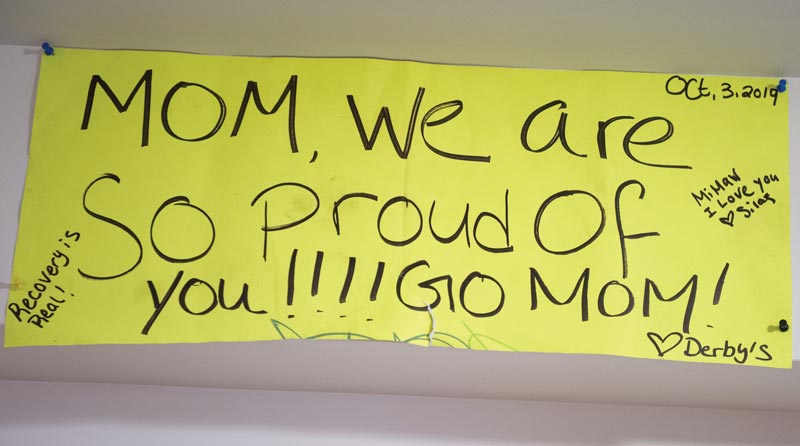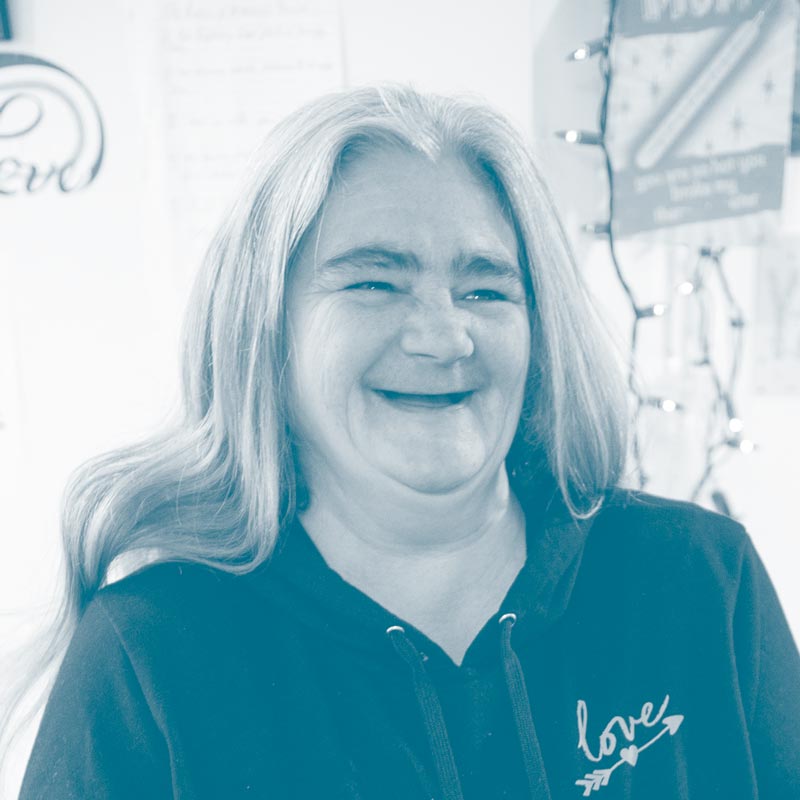
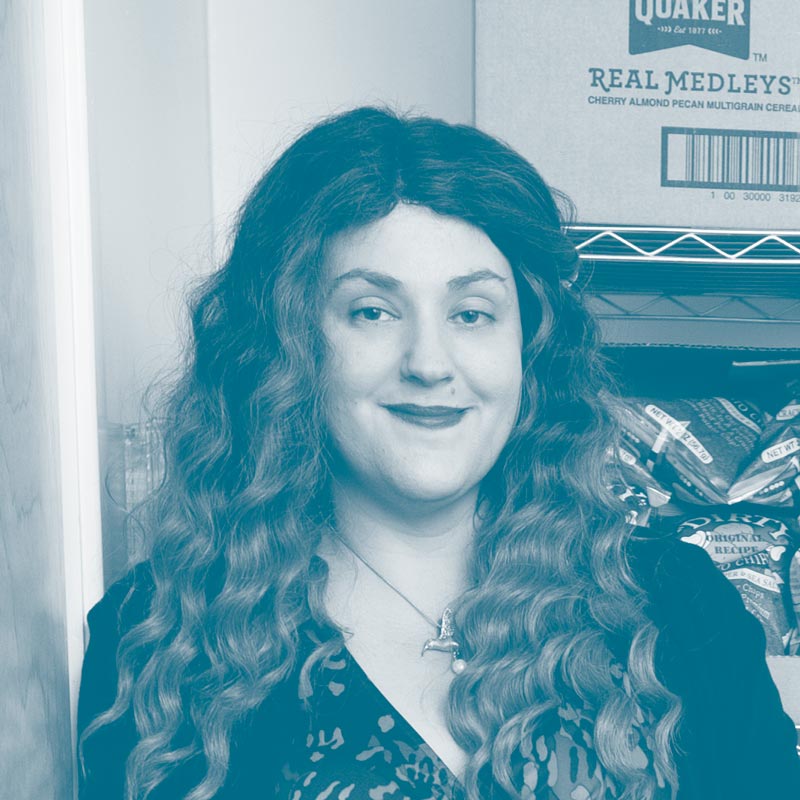
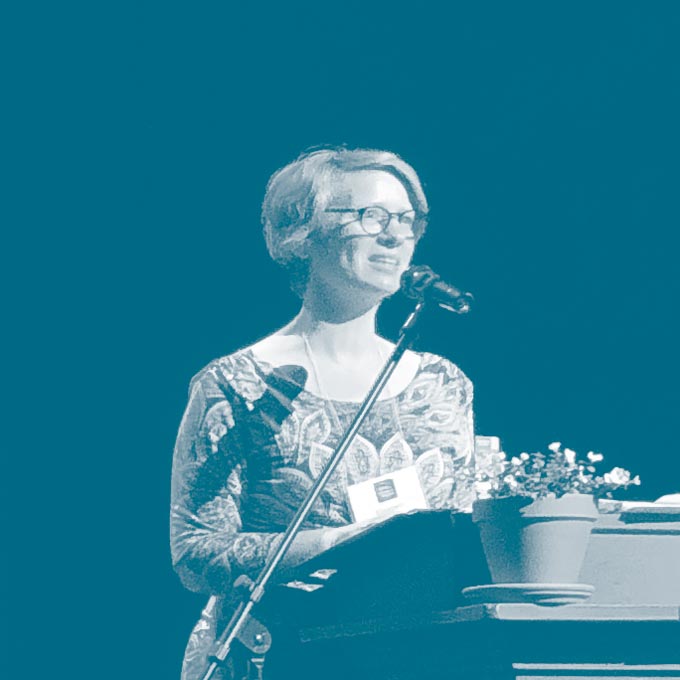
2019
ANNUAL
REPORT

CONTENTS
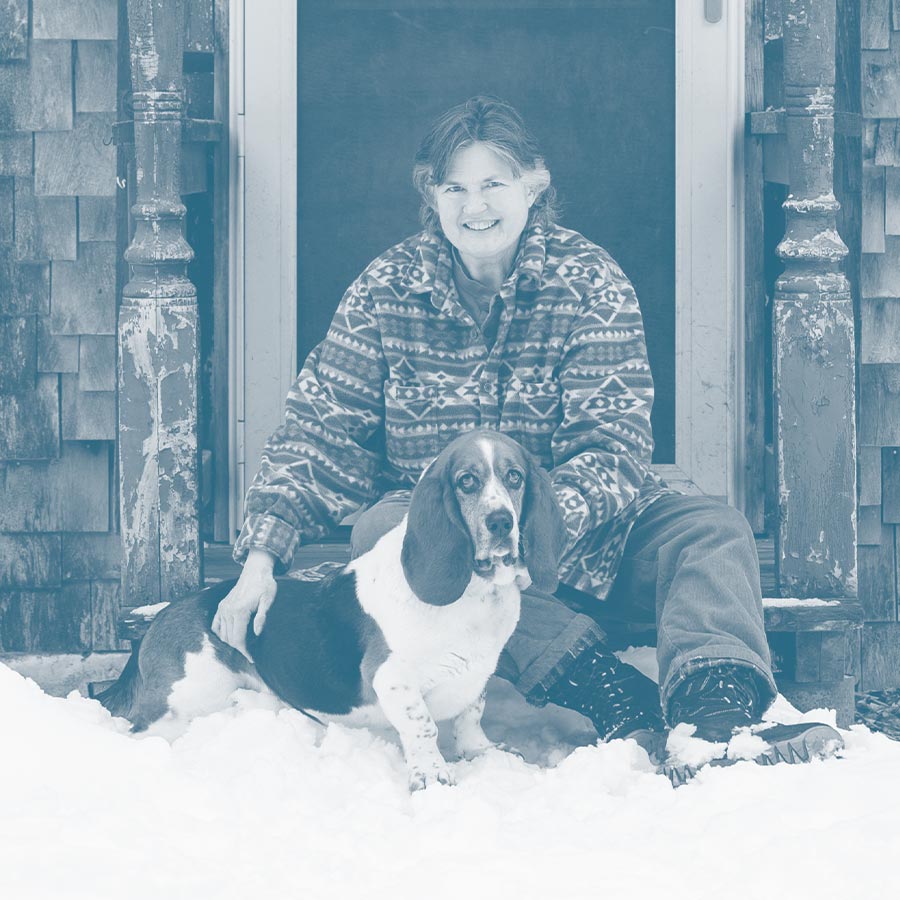


A NOTE FROM OUR DIRECTORS
Home to Innovation

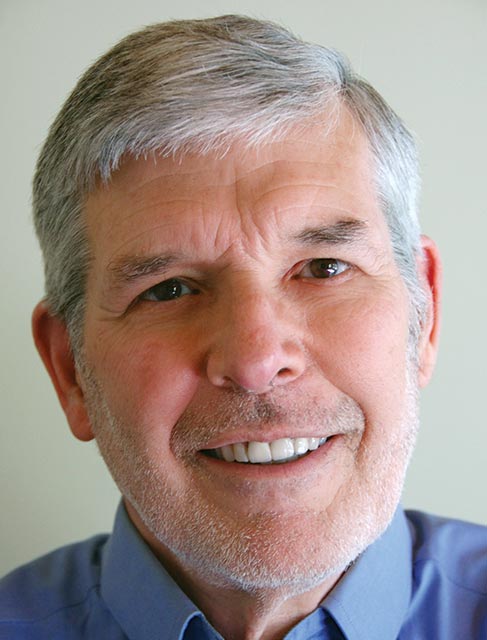
Dear Housing Trust friends,
As we write this letter during Vermont’s Stay Home/Stay Safe order, our last year accomplishments feel worlds away from this new reality of fulfilling our mission during a global pandemic. Reflection on these, however, serve as a quiet reminder of our strengths and how our past actions have prepared us to respond to the current needs of our residents and homeowners in a safe and healthy way.
In 2019, we embarked on a new three-year strategic plan that aims at fostering innovation and excellence, improving the lives of the people we serve and increasing housing opportunities, particularly in upper Windham and Windsor Counties. We are proud of the progress we made in our first year and are excited to share some highlights and stories of our work and of the people we serve.
Our focus on innovation and excellence compelled us to reorganize how we deliver property management services resulting in less paperwork stress for our residents and a quicker turn-around time to fill vacancies. We also expanded our maintenance team and reallocated resources to increase resident support. In addition, our homeownership team has laid the groundwork to launch an interactive, online program which will allow homebuyers to visually map their progress, upload documents directly and easily communicate with our Homeownership Specialists remotely without losing the personal touch that our customers value so much.
To advance toward our goal of improving the lives of the people we serve, our Green Mountain Home Repair team made significant progress with a record 92 homes having been rehabbed, repaired or increased in energy efficiency. In addition, WWHT convened a Leadership Circle of Executive Directors from many of Brattleboro’s leading housing and social service organizations. In our time together and with feedback from the community we identified housing retention support as a significant gap in the system. We are now working closely together to find effective ways to fill this gap so that renters receive the support they need to maintain stable and safe homes.
Expanding new rental housing opportunities remains a primary goal of the Housing Trust. The Snow Block, in downtown Brattleboro, was completed in mid-November and all 23 apartments were fully occupied by the end of the year. We also identified a new project in Bellows Falls that will transform a dilapidated old parking garage into 26 new apartments along the Connecticut River. Construction is slated to start later this year. Finally, two projects in pre-development include 24 new homes adjacent to the Putney Food Coop and the redevelopment of Brattleboro’s Municipal Center which will result in approximately 22 new apartments.
In all of our work and in the stories you will read in the following pages, courage is a reoccurring theme – the courage to think about ourselves differently, the courage to tackle challenging problems or take on a daunting project. It will take courage to face what the future will bring, but we are committed to it because the significance of home as the foundation of health and safety has never been more evident. We are so grateful to have your support on this journey. Thank you!
With gratitude,
Executive Director

Board President

GREEN MOUNTAIN HOME REPAIR
The Restorative Power of Home
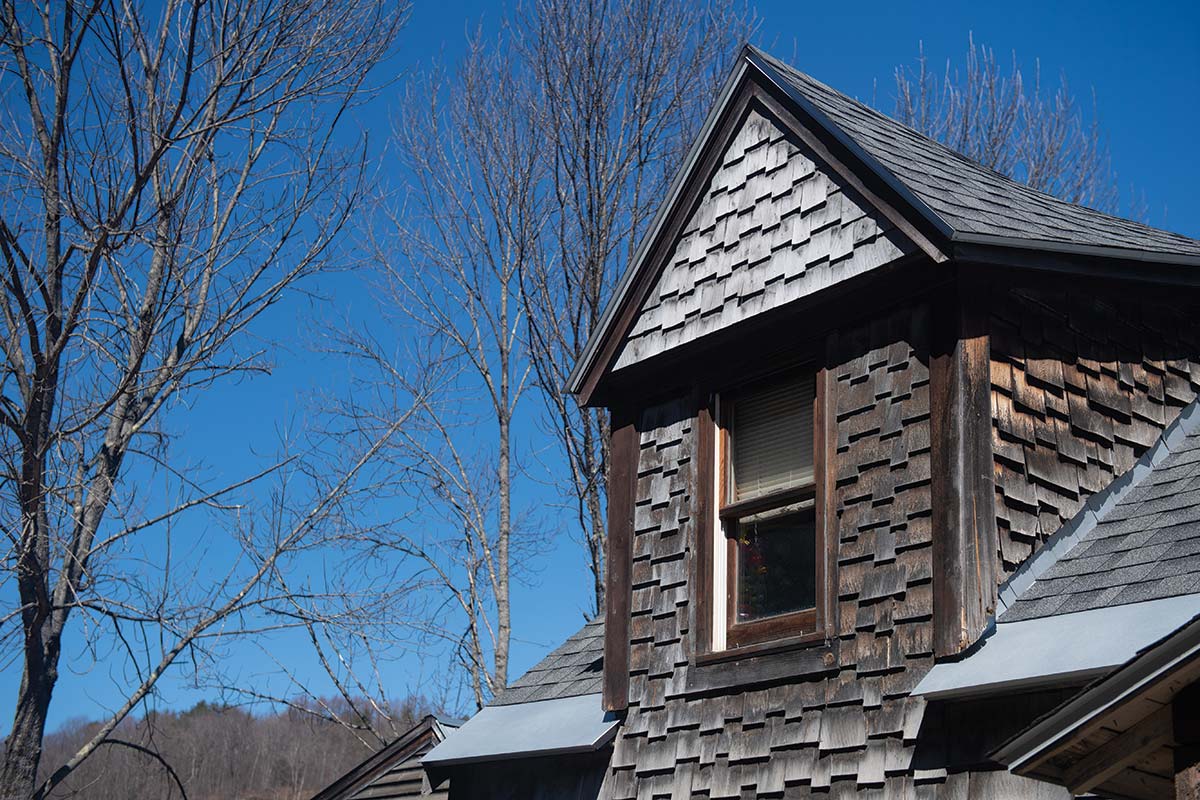
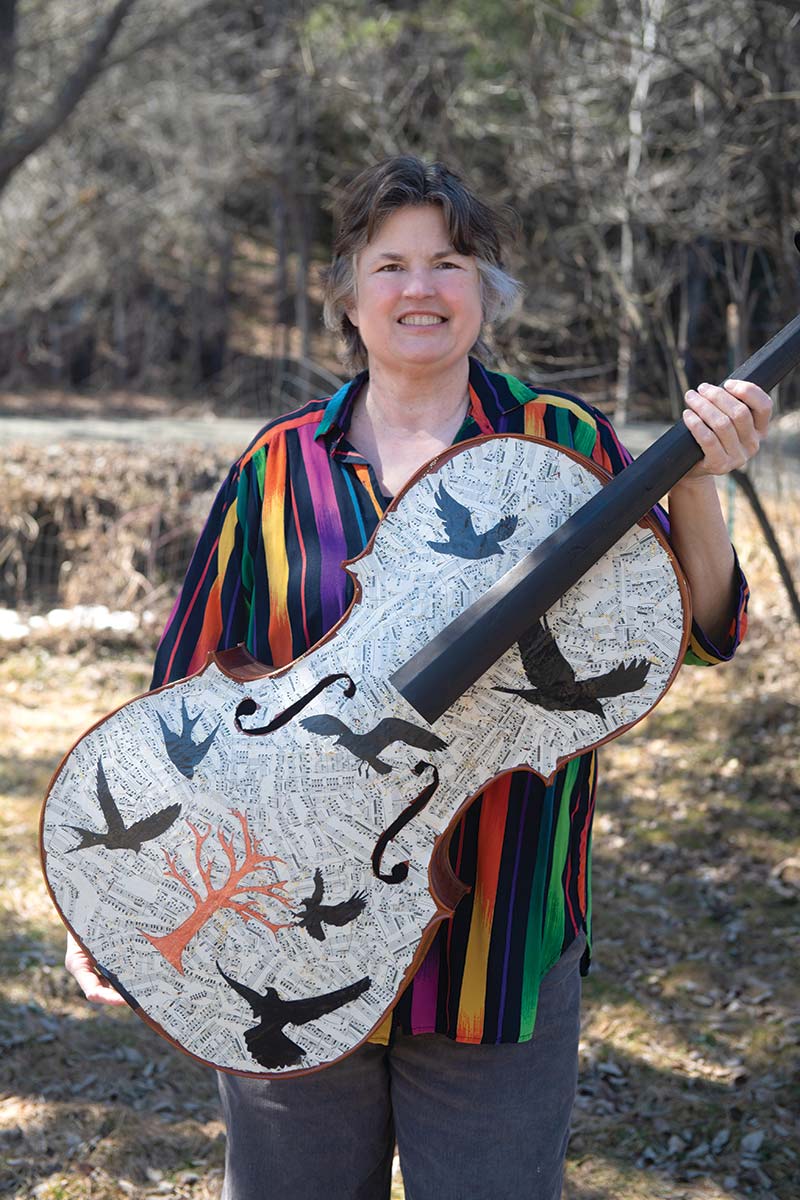
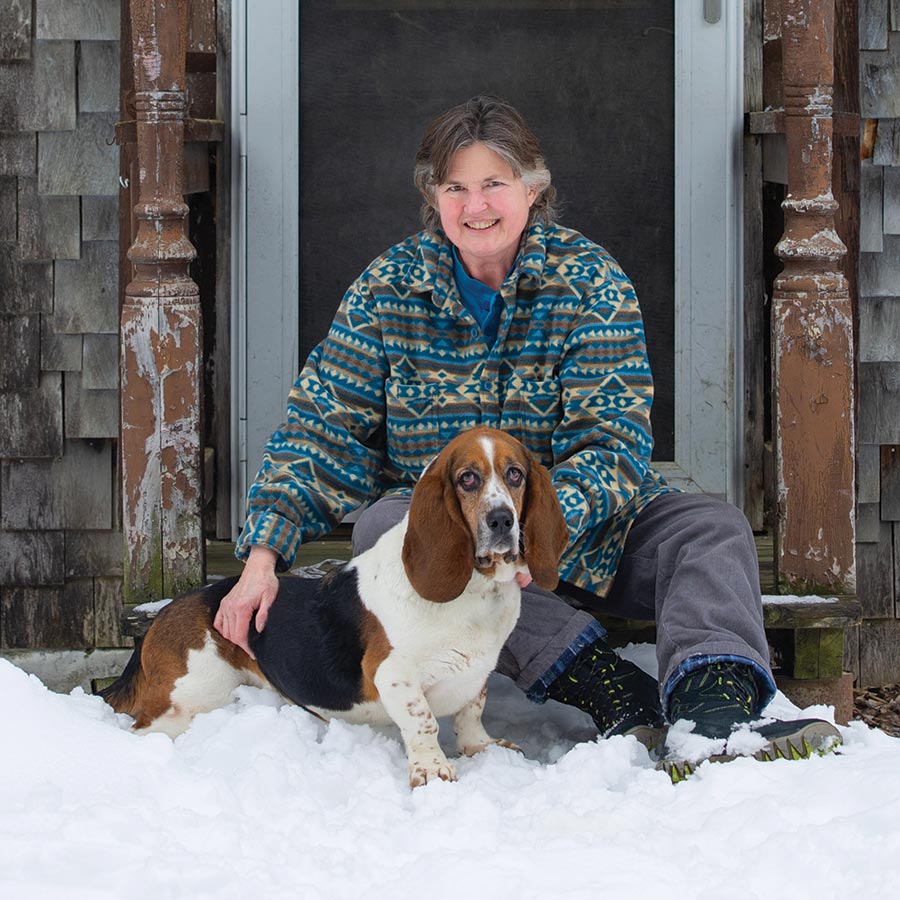
Following a long search, Mitch and her late wife Anne moved into their home in Royalton in 2002. Built in 1930, the house had an unkempt yard and needed an extensive list of repairs, but the couple was able to look beyond all that to see the property’s potential.
About a year and a half ago, seeking assistance for a much-needed new roof, Mitch and Anne applied to Windham & Windsor Housing Trust’s Home Repair Program. Sadly, soon after receiving approval for a low interest loan from WWHT, Anne passed away from cancer. Mitch’s life hit pause.
Some months later, Mitch received a mandate from her home insurance company to complete the roof repair or face cancellation. Mitch reached out to WWHT, where lending manager Tara Brown restarted the process and guided her through the paperwork.
“It was overwhelming because I was in the process of grieving,” says Mitch. “I had to re-apply to the program, but Tara was very helpful, and that part all went smoothly. Anne’s death had left me in a precarious financial situation, and I was able to get a deferred loan. I’m very grateful for that.”
Mitch’s loan was able to cover a number of other critical repairs including replacement siding for the back of her house, and fixing the stairs to her second floor. With her own supplemental funds, Mitch also had her deck rebuilt, which she says she has not been able to use for years. She credits Dave Grobe, WWHT’s Housing Rehab Specialist, for finding the right contractors, and for keeping everything on track.
“This house has had lots of repairs and nothing had ever been done right. So there were complications with everything, really. Dave would come out, talk to the contractor, and figure out what to do. It was very reassuring to know that someone had my back.”
Once the roof work was underway, Mitch was amazed with the quality and efficiency of the contractor. “The team was just fabulous. They worked so incredibly hard. They invaded the house for 3 days, then they were gone! It’s reassuring, knowing I don’t need to worry about these things anymore.”
Mitch reflects on what makes her home special. “Honestly, it’s the fact that Anne lived here. We bought it together, and had a great life here. It’s hard being here by myself, but I’m not ready to let this house go.
“What I really love right now, is that the Housing Trust gave me the funds for my back wall. It will be so nice to go outside and enjoy my backyard. There’s a stream, wildlife — it’s really special out back. I just love it.
“The Housing Trust helped me through a very difficult time, and for that I am so grateful.”
GREAT RIVER TERRACE
Finding the Courage to Change
Darlene Derby has been in her own apartment at Great River Terrace for almost two years now, where she happily entertains her grandchildren on a daily basis. GRT is WWHT’s supportive services community for formerly homeless. Darlene has a compelling story leading up to her moving into GRT, but what’s really amazing is what she has been able to accomplish since moving there. She is the head of the tenant council, leads a weekly recovery group, and has been a valued member of the WWHT Board of Directors, full of energy and gratitude. Her story is an important reminder of how easy it is for anyone to fall on hard times and how vital a home of one’s own is to rebuilding one’s life.
In 2012, following years of addiction, mental illness, and living on the streets, Darlene met her future husband, and thought she was finally on the road to recovery. Clean, sober, and successfully managing bipolar schizophrenia, Darlene married Edward in November of 2015. They were in the process of buying a mobile home, when tragically, just three months after they married, Edward died. Shortly after that, Darlene lost her mother, and then both her grandparents. She spiraled into a deep depression, started using again, and went back to living on the street.
“My family disowned me — my kids wanted nothing to do with me. I even spent time in jail, but life on the street kept pulling me back.”
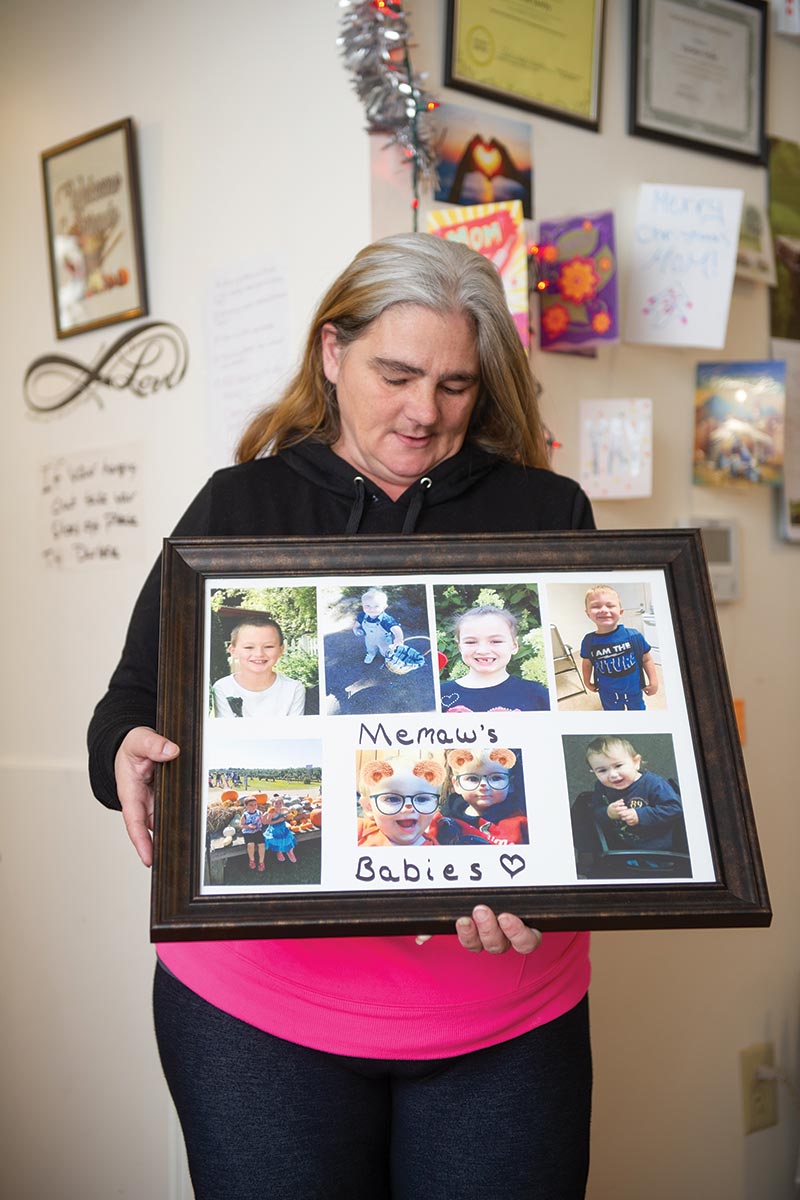
At 47, Darlene overdosed. It was then, at her lowest ebb, that her life changed forever. While unconscious, Darlene dreamed of her 12 grandchildren — all of them together — and that vision was powerful enough to invoke change. Determined to get off the street, Darlene turned to the Drop-In Shelter at Groundworks Collaborative and found the help she needed. Groundworks set her up with a representative payee to oversee her finances, and helped her apply to Great River Terrace. She became a resident in August, 2018.
“I love it here so much. The apartments are beautiful, and I’ve never met people so helpful. It’s the best feeling ever to come in, unlock my door and say I’m home — to feel this again after so long.”
Through the supportive services available to her through GRT, Darlene has found the serenity and stability she needed to address her mental health and substance abuse issues. With her newfound confidence and independence, Darlene has become a beacon of hope for others struggling with addiction and homelessness. With two-and-a-half years of sobriety, Darlene is now a certified recovery coach, runs GRT’s weekly sobriety support group, and has even started another community-based group called Core Experts designed to help people understand what it’s like to be homeless and fight addiction. As the head of the tenant council, she is actively involved in resident life and advocacy, facing every issue and concern with a positive attitude and a huge heart. She has even brought her passion and perspective to the WWHT Board of Directors.
“What I experienced — being a single woman living on the streets — it’s terrifying. I just want to help other people who are struggling find a good stable home, like I did. I feel blessed.”
It’s the seemingly simple things that are so meaningful for Darlene, like cooking, doing laundry, having a garden, and celebrating birthdays with other residents. But the very best part of life at GRT for Darlene, is the time she spends with her grandchildren. “I see my grandkids every day. The youngest — 17 months — just said ‘I love you.’ It feels so amazing — living here has made me love myself again. It’s made me a better person.”
Westgate housing
Expanding Horizons: Stepping Outside the Comfort Zone
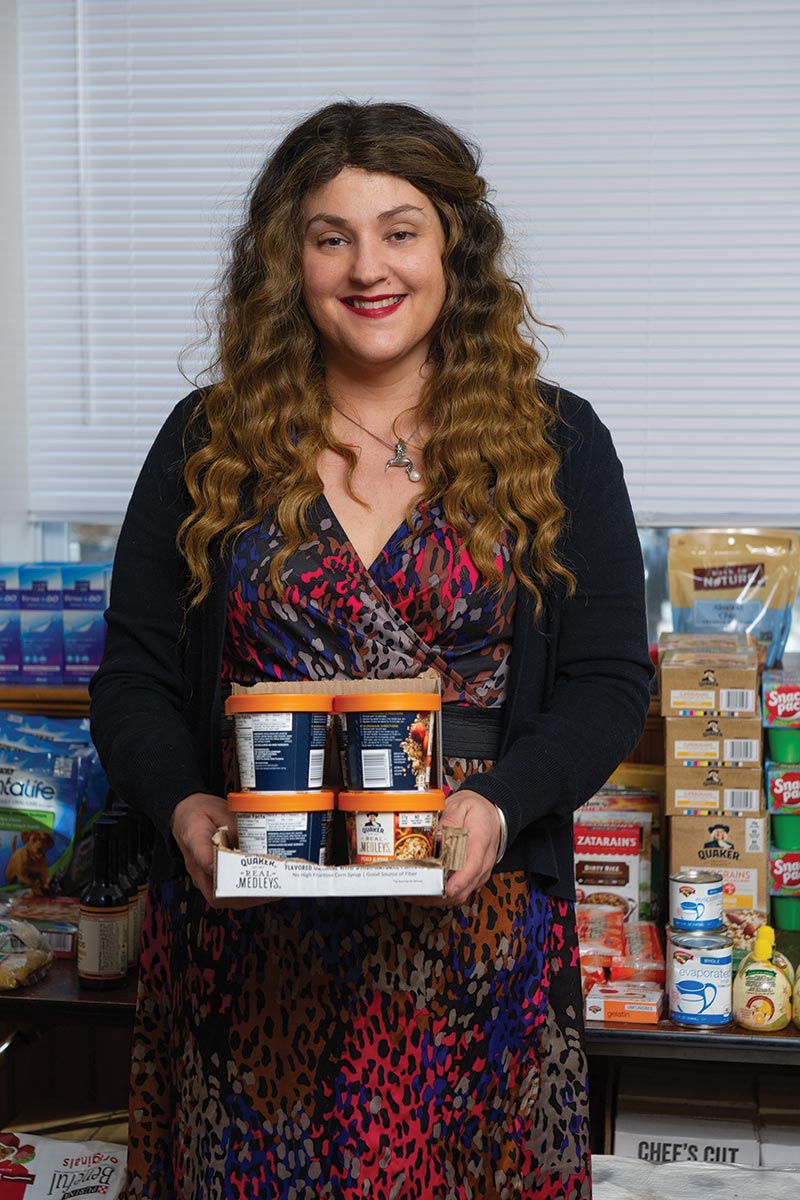
As a social worker living in Keene, Billie Wells had struggled with expensive housing for years. A move to Brattleboro in 2016 found more of the same, until a former resident of Westgate suggested she fill out an application. Westgate is a 98 unit affordable housing development co-owned by WWHT and a resident-led non-profit, Westgate Housing, Inc. Here, in this very special community, Billie has not only found a beautiful, affordable home for herself and her young daughter, but the courage to pursue a leadership role and more social connections.
“What’s special about Westgate is its sense of community,” says Billie. “There is a place for everybody, and you can be as involved as you want.”
Getting involved was never something Billie felt comfortable doing prior to living at Westgate. Social anxiety made it difficult to meet people, and it didn’t help that expensive housing required her to work long hours at multiple jobs. Since moving to Westgate, Billie has pushed herself beyond her own social boundaries. She is currently a board member of the Westgate Housing non-profit, and she also runs the food shelf in the property’s community center.
“I joined the board because I wanted to become more involved — meet more neighbors. When the opportunity to run the food pantry came along, I thought it was an opportunity to do something meaningful. It’s hard for me to get to know people, and this is a way to socialize.”

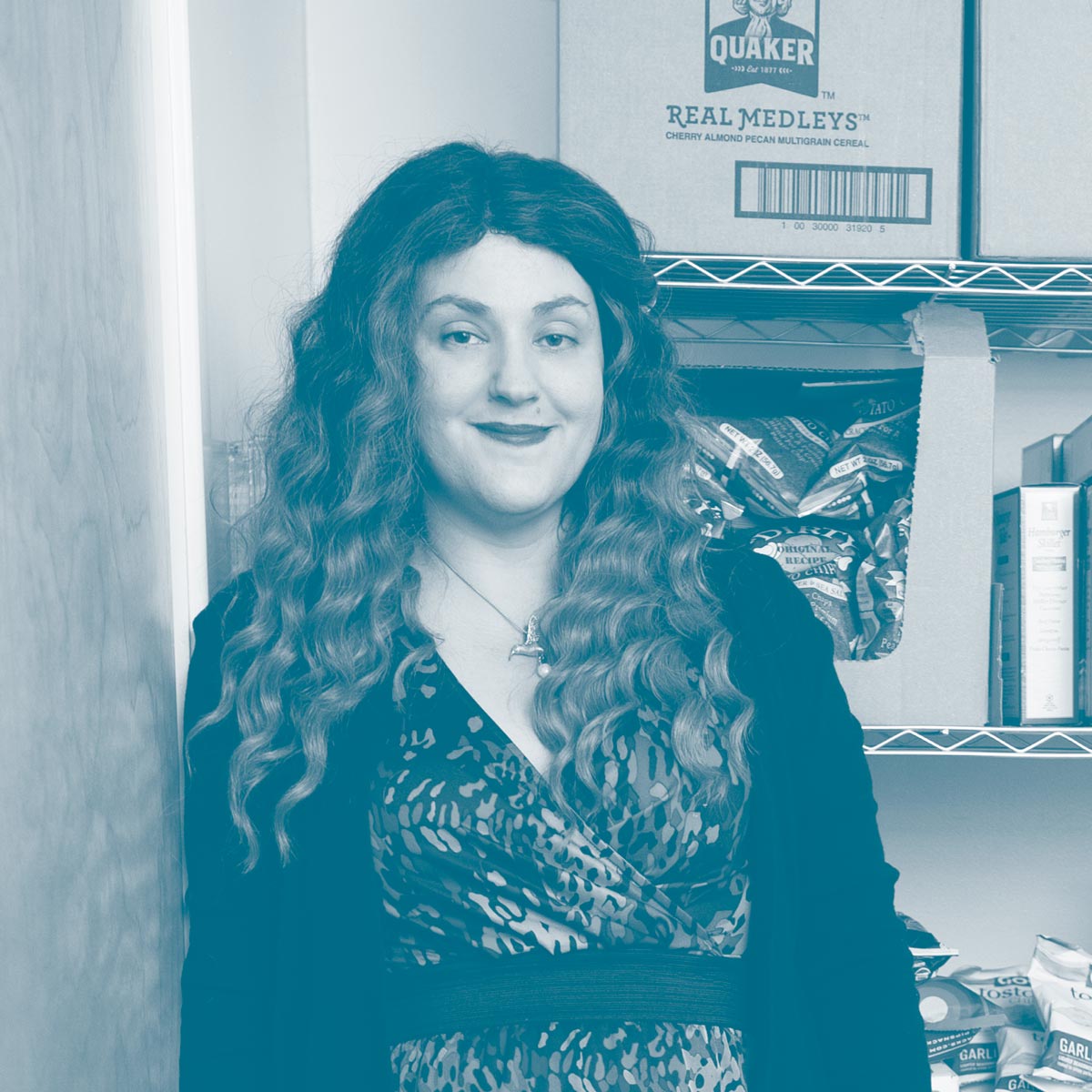
Westgate’s food shelf is thriving under Billie’s leadership. She handles everything from ordering all the food from the Food Bank, to meeting the monthly delivery, to setup and distribution. Her budget doesn’t allow for much fresh produce, so she’s eyeing a plot at the Brattleboro Retreat Farm to plant a garden and grow vegetables herself. The food shelf has 2 posted open days each month, but residents often stop in during the week.
“It’s a lot of work, but I feel like I’ve brought a lot of enthusiasm because I re ally enjoy it. I like seeing the residents and getting to know my neighbors. I’m learning a lot, too, about the Food Bank and how it works. I’m competing with 60 other groups for food, but the more I am on, the better quality food we get.”
One of Billie’s top goals is to increase the number of people who take advantage of the food shelf. “I’ve been trying to build it up, and I was surprised more people weren’t coming, considering how good the food is. I try to tell residents that a little bit of their rent goes toward this — that it’s for everybody. What I want the most is for more people to come.”
Through affordable housing at Westgate and its sense of community, Billie Wells has stepped outside her comfort zone and found purpose, and both she and her daughter are enjoying a better quality of life. “I feel really safe here, my child is doing really well in school, I feel like we’ve really flourished in this town. I just want people to feel the same excitement about living here that I do.
“It took a lot for me to join the board — to take over the food pantry. I need to do these things to make my life more meaningful. And it’s great for my daughter to see, too.”
SASH Partnership Award
Recognizing Innovation: Mt. Ascutney Hospital and SASH
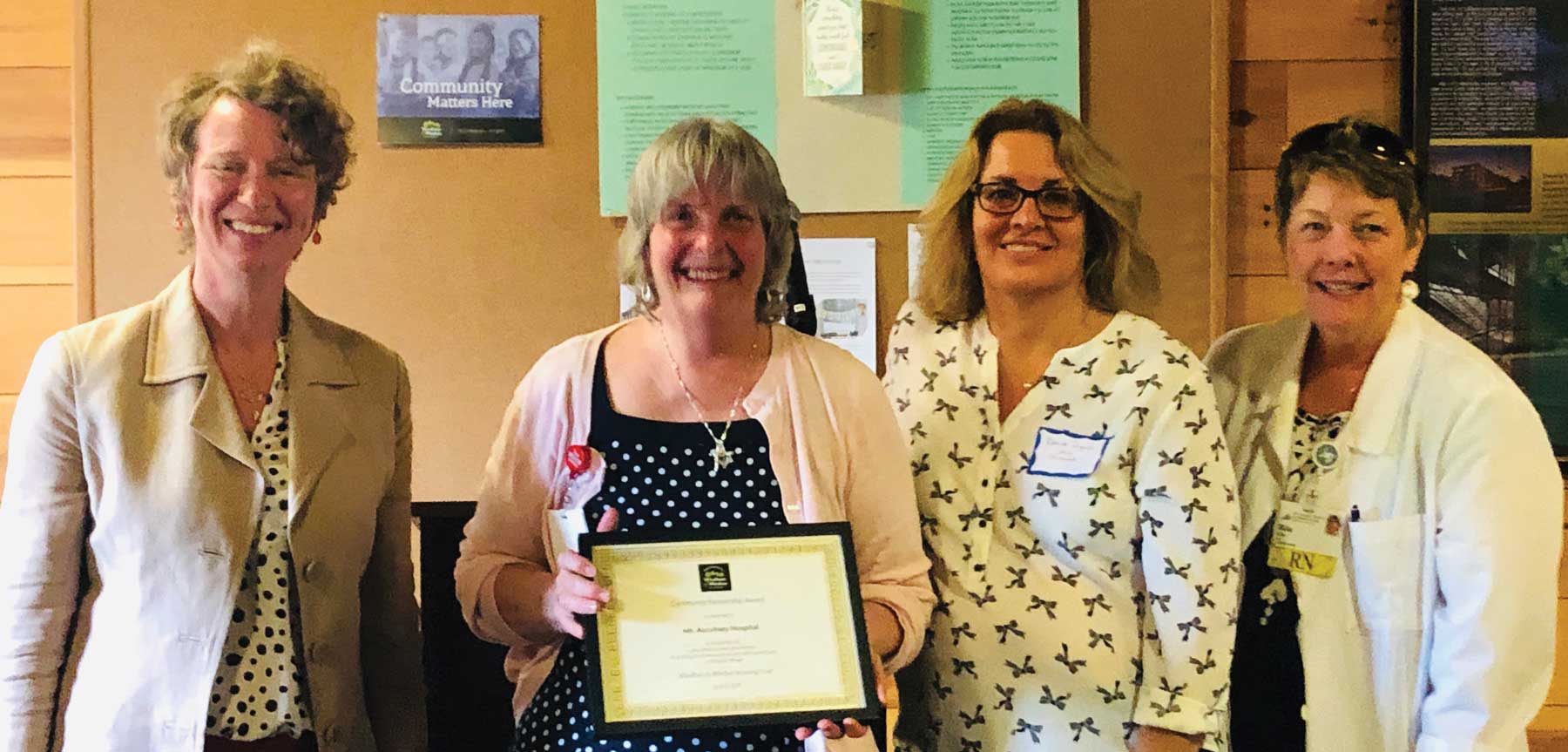
In May of 2019, Windham & Windsor Housing Trust presented Mt. Ascutney Hospital with its Partnership Award in recognition of its decade-long dedication to the SASH program. SASH is WWHT’s supportive housing program, designed to help Vermonters live safely and healthfully at home.
 Created in 2009 as part of a statewide health care initiative, the SASH program helps Vermont’s most vulnerable citizens access the care and support they need while living at home. The program is available in communities throughout Vermont, including Windsor Village and Union Square, two WWHT properties serving seniors in Windsor. Mt. Ascutney Hospital has been an integral partner with WWHT since the very beginning.
Created in 2009 as part of a statewide health care initiative, the SASH program helps Vermont’s most vulnerable citizens access the care and support they need while living at home. The program is available in communities throughout Vermont, including Windsor Village and Union Square, two WWHT properties serving seniors in Windsor. Mt. Ascutney Hospital has been an integral partner with WWHT since the very beginning.
“We were part of the team that interviewed the first SASH coordinator, and were there when they built their first caseload,” says Jill Lord, Director of Community Health at Mt. Ascutney Hospital. “We had already established a network of community partners when SASH was entering the community. There was a solid alignment of vision and mission of improving the health of the community.”
When WWHT started its SASH program at Windsor Village in 2013, Mt. Ascutney Hospital immediately understood the potential impact the partnership could have. The hospital and its entire clinical staff embraced the value of the SASH model to provide individualized, on-site support, and assigned staff nurse Rita Bennett to the program.
Since 2013, Rita spends every Thursday on-site at Windsor Village in her official capacity as the SASH Wellness Nurse. Her monthly blood pressure clinics are well attended, and every week she arrives with a “topic-of-the-day” for group discussion, such as how to stay safe from the Corona Virus, the importance of exercise, and learning healthy eating habits. Mt. Ascutney Hospital has ongoing initiatives for Diabetes Prevention and Fall Prevention, and both programs are important topics in Rita’s weekly SASH curriculum. Sometimes — outside of her regular assignment — she even leads a Tai Chi class.
“It’s tremendous what we’ve built up over the years,” says Rita. “I have a very special rapport with all of the physicians and with the hospital, and that is what continues to work well for us, and make us such a great resource. Whether it’s keeping a diabetic in a healthy mode, coordinating lab work, monitoring blood pressure, or helping someone get a flu shot, I can be that critical point person who gets back to a doctor. We are a team with a common goal, and that is keeping people in their home. That’s what we try to do.”
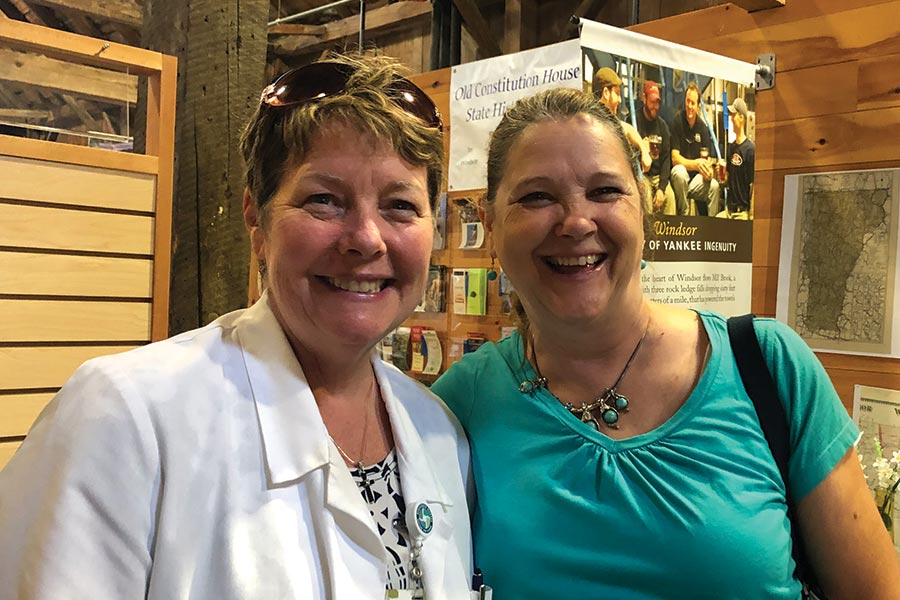
Nearly 100 people in Windsor County rely on SASH, and as a result of the work between Mt. Ascutney Hospital and Windham & Windsor Housing Trust, the residents of Windsor Village continue to thrive and live their best life.
“Here at Mt. Ascutney Hospital, we have a deep respect for the quality of the SASH program, its patient-centered approach, strong advocacy, referral and care coordination,” says Jill. “From the very beginning, we have worked together for the patients and the community, and have grown together as the program has evolved. SASH is one of the most essential services within our community, and we are grateful for the determination of the Housing Trust.”

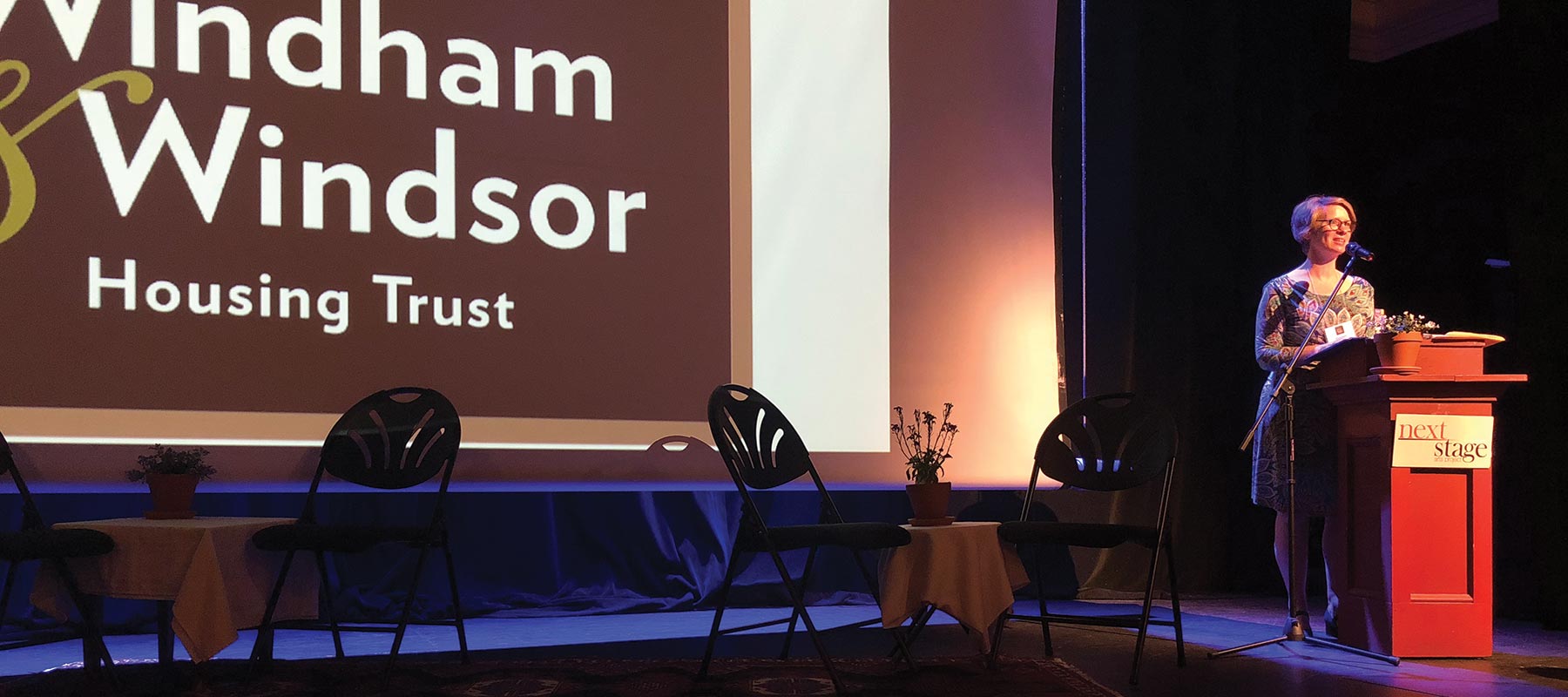
BUILDING A CULTURE OF
INNOVATION
and LEARNING
A ROUNDTABLE DISCUSSION WITH
THE BOD EXECUTIVE COMMITTEE:
Denny Frehsee · Margaret Clark
Victor Morrison · Kate Jellema
BUILDING A CULTURE OF
INNOVATION and LEARNING
A ROUNDTABLE DISCUSSION WITH THE BOD EXECUTIVE COMMITTEE:
Denny Frehsee · Margaret Clark · Victor Morrison · Kate Jellema
WWHT is on a quest for innovation. What began as a sideline conversation during a staff and board retreat emerged as a new priority and the top goal in the organization’s 2019–2021 strategic plan.
Goal #1: Building a Culture of Innovation and Learning highlights an organizational intention to engage the talents and creativity of the entire staff to uncover new ideas and ways to deliver services to the community in the most efficient way possible. It is being enthusiastically pursued by board, management and staff.
So, what exactly is a culture of innovation? Leaders describe it as a culture built on curiosity, where staff looks beyond their day-to-day obligations, questions assumptions, and constructively challenges each other’s thinking as well as the status quo. Building and fostering an innovative culture requires making the workplace a safe place where employees feel they can take risks, and where mistakes are valued as opportunities to learn. It also requires the enlightened, unwavering support of the organization’s board of directors.
The WWHT board is a diverse, highly engaged group of individuals, each bringing a unique and valuable perspective, from architect to acaademic; fundraiser to CFO. It is broadly representative of the community and includes residents of WWHT-owned properties. In one member’s words, they work “exceptionally well together,” with deep respect and admiration for Elizabeth Bridgewater and the dedicated work of her staff. Their collective passion for the WWHT mission is what powers their successful collaboration — and it is what guided them to the innovation initiative.
Members of WWHT’s Executive Committee shared their thoughts on the process, the progress, and the value of building a Culture of Innovation and Learning.

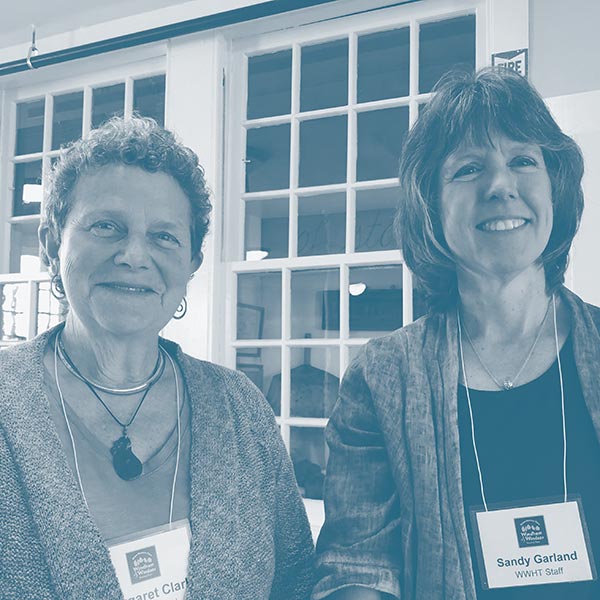
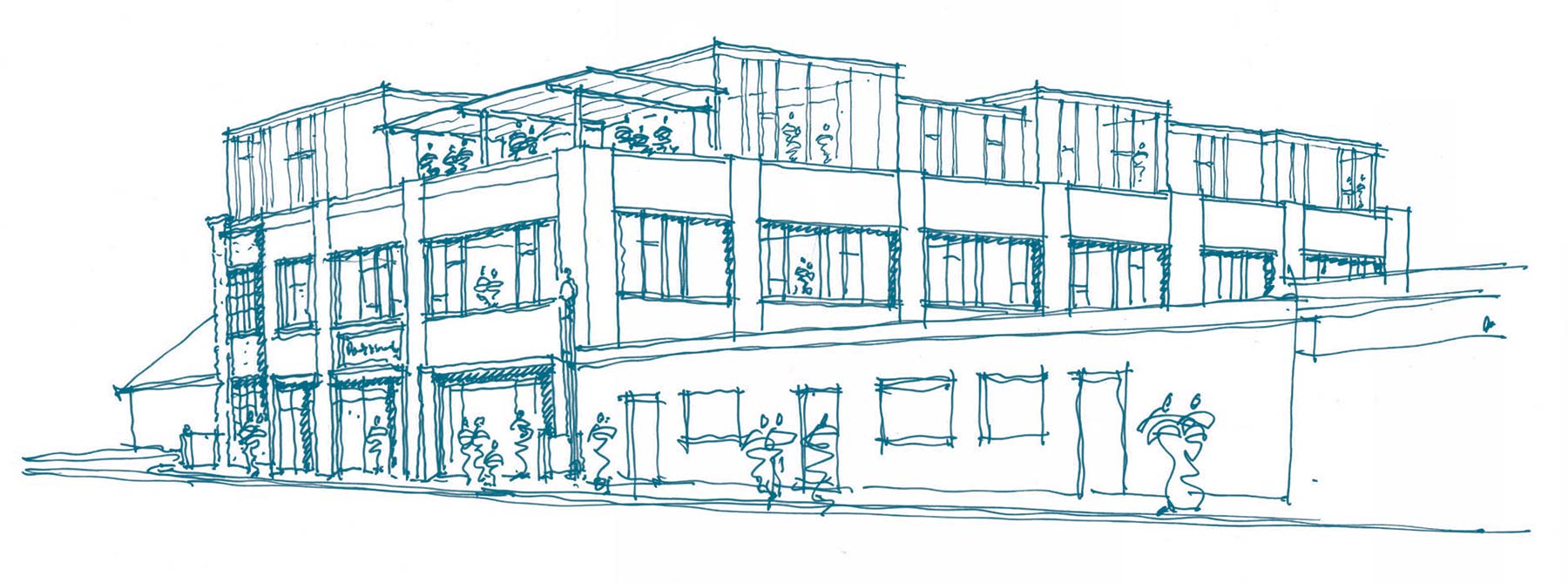
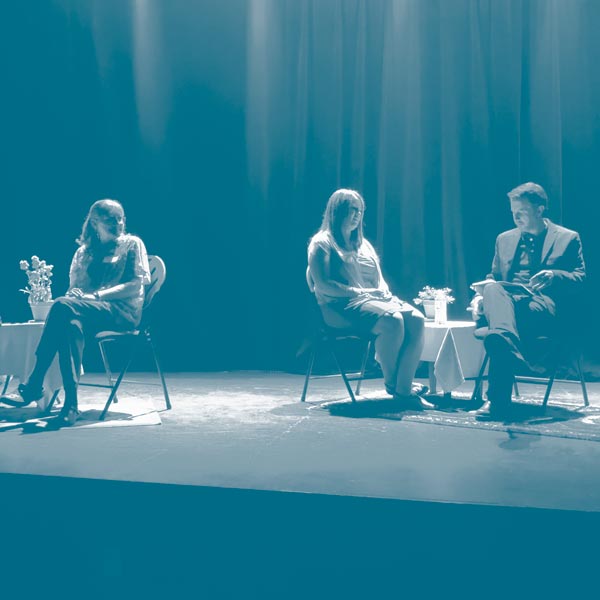
Financials
Statement of Activities
Revenues

Expenses

For more information, click here to read the complete financial report for the year 2019.
Financials
Individual/Business Donations
Donations
Business Sponsorships
Individual Donations
Timing is Everything: The Connie Snow Opportunity Fund
Total Donations

Support Windham & Windsor Housing Trust
Housing Locations and Services
Areas We Serve
Our Staff
Powering Innovation
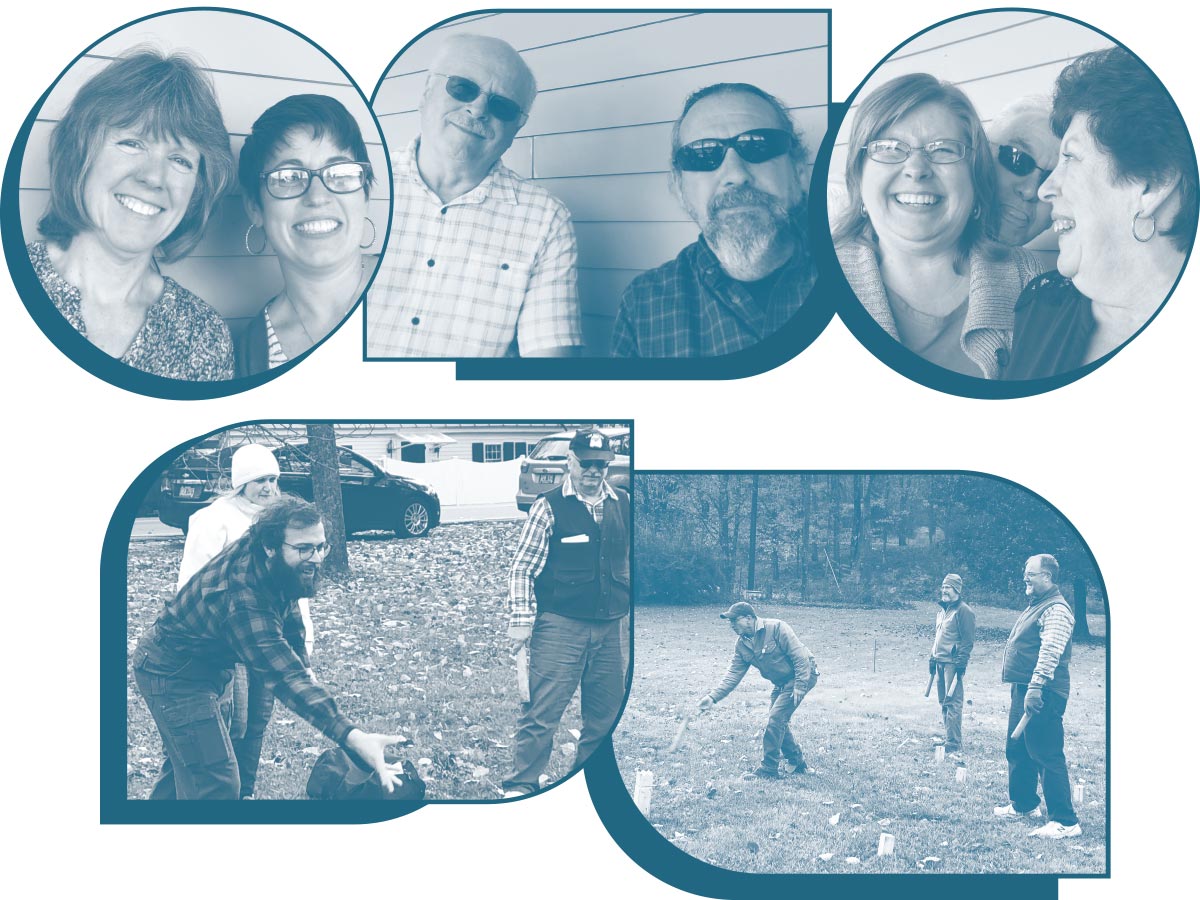
Our Board
Faces of Leadership
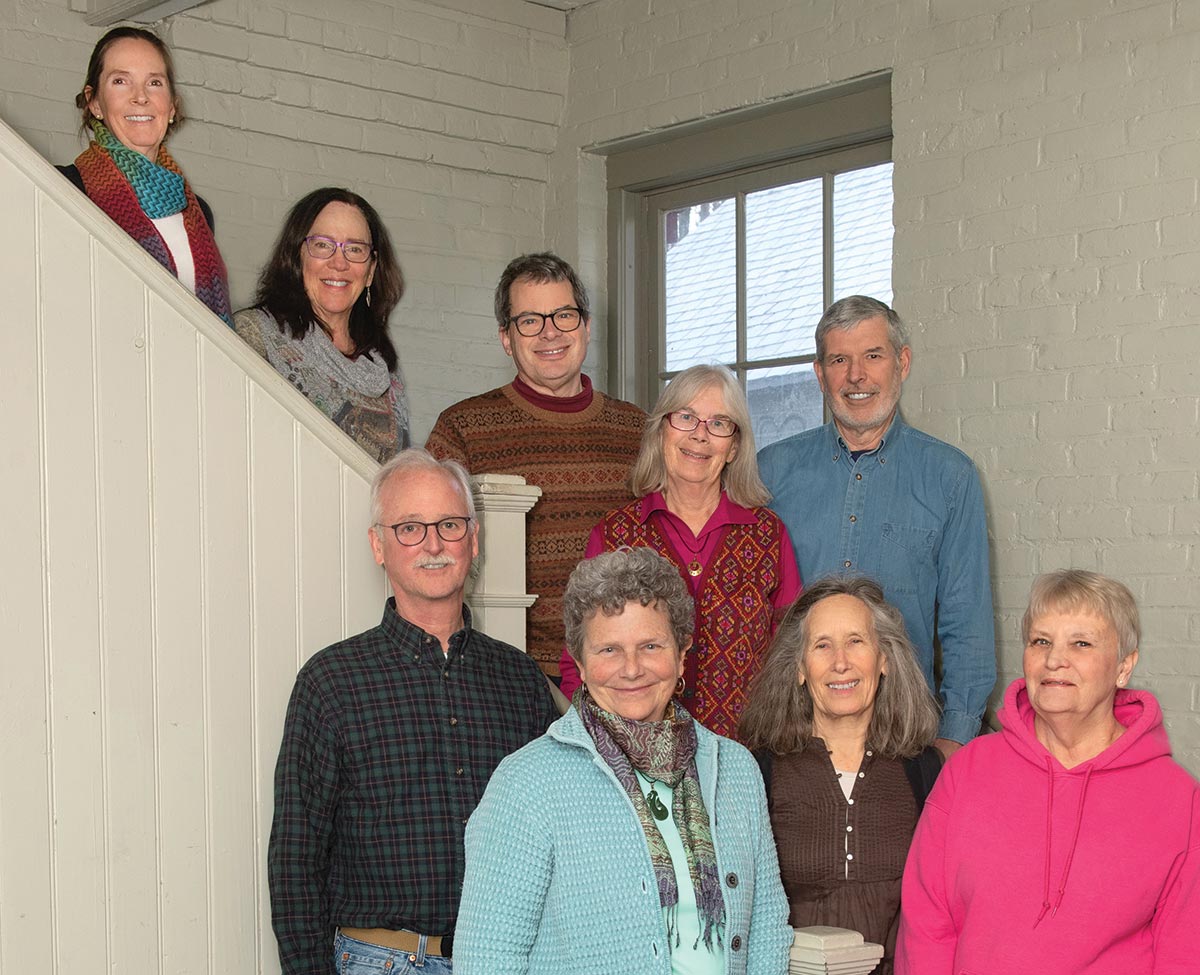
Headquarters — Brattleboro
Elizabeth Bridgewater
EXECUTIVE DIRECTOR
Tara Brown
LENDING MANAGER
Steve Casabona
HOMEOWNERSHIP SPECIALIST
Jerry Freeman
HOUSING REHAB SPECIALIST
Sandy Garland
DIRECTOR OF FINANCE
Ginger Gaudette
SR. PROPERTY MANAGER
Betsy Hall
HOUSING DEVELOPMENT ASSISTANT
Tim Herzig
STAFF ACCOUNTANT
Phil Jones
MAINTENANCE MECHANIC
Marion Major
OUTREACH AND MARKETING COORDINATOR
Morey Page
MAINTENANCE SUPERVISOR
Peter Paggi
DIRECTOR OF HOUSING DEVELOPMENT
Jeremy Paquette
HOME OWNERSHIP PROGRAM COORDINATOR
Jeanine Rodriguez
DIRECTOR OF ASSET AND PROPERTY MANAGEMENT
Susan Rousse
COMPLIANCE AND LEASING MANAGER
Brain Seaman
MAINTENANCE TECHNICIAN
Jena Sirois
OFFICE MANAGER
Emma Stewart
HOUSING SUPPORT COORDINATOR
Rob Tarbox
MAINTENANCE MECHANIC
Travis Tarbox
MAINTENANCE MECHANIC
Bruce Whitney
DIRECTOR OF HOMEOWNERSHIP
Katrina Willette
ACCOUNTING AND TECHNOLOGY SPECIALIST
Chris Zappala
MAINTENANCE TECHNICIAN AND PAINTER
Windsor County Office, Windsor
Parks Place Office, Bellows Falls
David Grobe
HOUSING REHAB SPECIALIST
Kayla Bernier-Wright
HOMEOWNERSHIP SPECIALIST
Codi Raymond
SASH COORDINATOR
Resident Members
Christina Lively
Ellen Snyder
Susan McDormand
Darlene Derby
General Community Members
Denny Frehsee
PRESIDENT
Margaret Clark
VICE PRESIDENT
Victor Morrison
TREASURER
Kate Jellema
SECRETARY
Debbie Boyle
Alex Beck
Julie Peterson
Carol Buchdahl
Leo Schiff
Our Staff
Powering Innovation
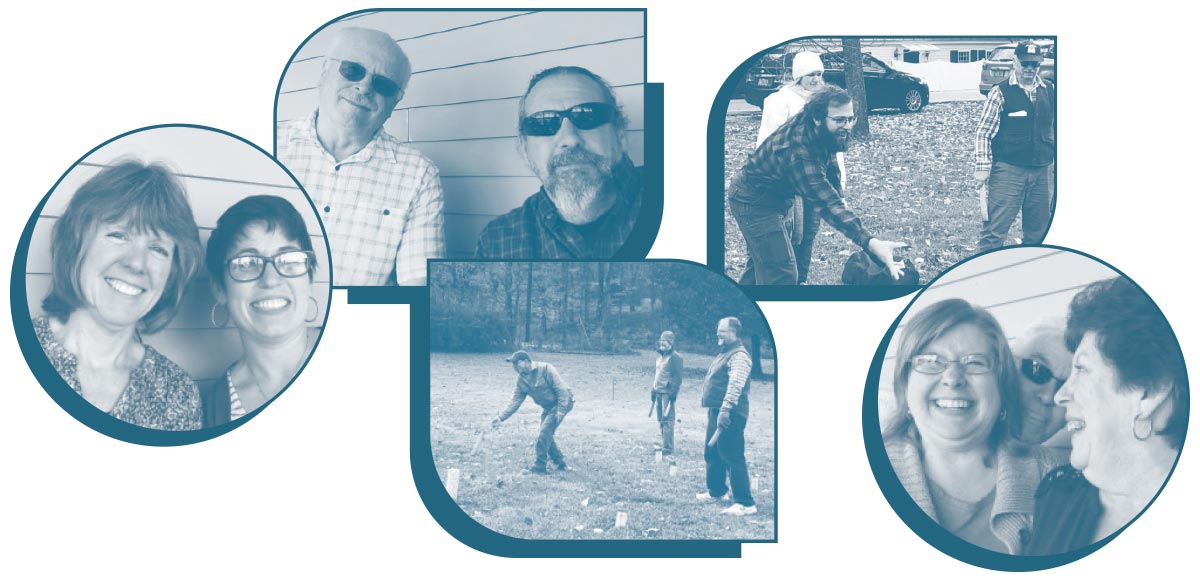
Headquarters — Brattleboro
Elizabeth Bridgewater
EXECUTIVE DIRECTOR
Tara Brown
LENDING MANAGER
Steve Casabona
HOMEOWNERSHIP SPECIALIST
Jerry Freeman
HOUSING REHAB SPECIALIST
Sandy Garland
DIRECTOR OF FINANCE
Ginger Gaudette
SR. PROPERTY MANAGER
Betsy Hall
HOUSING DEVELOPMENT ASSISTANT
Tim Herzig
STAFF ACCOUNTANT
Phil Jones
MAINTENANCE MECHANIC
Marion Major
OUTREACH AND MARKETING COORDINATOR
Morey Page
MAINTENANCE SUPERVISOR
Peter Paggi
DIRECTOR OF HOUSING DEVELOPMENT
Jeremy Paquette
HOME OWNERSHIP PROGRAM COORDINATOR
Jeanine Rodriguez
DIRECTOR OF ASSET AND PROPERTY MANAGEMENT
Susan Rousse
COMPLIANCE AND LEASING MANAGER
Brain Seaman
MAINTENANCE TECHNICIAN
Jena Sirois
OFFICE MANAGER
Emma Stewart
HOUSING SUPPORT COORDINATOR
Rob Tarbox
MAINTENANCE MECHANIC
Travis Tarbox
MAINTENANCE MECHANIC
Bruce Whitney
DIRECTOR OF HOMEOWNERSHIP
Katrina Willette
ACCOUNTING AND TECHNOLOGY SPECIALIST
Chris Zappala
MAINTENANCE TECHNICIAN AND PAINTER
Windsor County Office, Windsor
Parks Place Office, Bellows Falls
David Grobe
HOUSING REHAB SPECIALIST
Kayla Bernier-Wright
HOMEOWNERSHIP SPECIALIST
Codi Raymond
SASH COORDINATOR
Our Board
Faces of Leadership

Resident Members
Christina Lively
Ellen Snyder
Susan McDormand
Darlene Derby
Resident Members
Christina Lively
Ellen Snyder
Susan McDormand
Darlene Derby
General Community Members
Denny Frehsee
PRESIDENT
Margaret Clark
VICE PRESIDENT
Victor Morrison
TREASURER
Kate Jellema
SECRETARY
Debbie Boyle
Alex Beck
Julie Peterson
Carol Buchdahl
Leo Schiff



